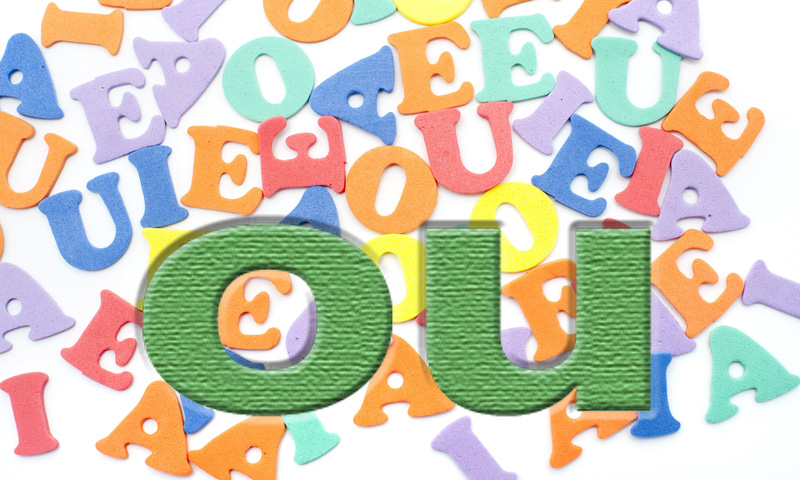
The versatile ‘ou’
A phoneme is the smallest unit of spoken sounds that together make up words (there are 44 in English) and a grapheme is the way that each phoneme is written, although there may be several of these for the same phoneme, e.g. ‘f’, ‘ph’ and even ‘gh’. The grapheme ‘ou‘ is so versatile, it can represent a range of different sounds, e.g.
- Bournemouth and Falmouth are in the south. (…ɔ:…ə…aʊ…)
- You could hear the courier coughing loudly. (…u:…ʊ…ʊə…ɒ…aʊ…)
- My spouse’s shoulder touched the bag of flour. (…aʊ…oʊ…ʌ…aʊ…)
- Your cousin is serious about moving to the country. (…ɔ:…ʌ…ə…aʊ…ʌ…)
- The young courtier was courageous though dour. (…ʌ…ɔ:…ə…ə…əʊ…aʊ…)
In short, with only five vowels at its disposal, English would be lost without the ‘ou’ combination! Not only do we commonly have more than one phoneme spelt with ‘ou’ in one sentence, but there are also single words containing different ‘ou’-related phonemes. Outrageous!
This economy, or over-use, emerged from the Great Vowel Shift and the French and Dutch influences, which resulted in some foreign spelling patterns and words morphing into English, thereby detaching some spellings from their individual component sounds. Nevertheless, the various sounds of ‘ou’ come naturally enough with practice and are obviously fundamental.
(Background image: freeimageslive.co.uk / CC BY 3.0)
